Description
Includes free, unlimited 1-1 and group tutoring sessions AND parent conferences!
This course is designed to:
- inspire your learners to think, create, and study hard.
- get students to reduce gaming time.
- encourage learners to do something great!
- help learners develop a curiosity that will drive lifelong learning and skill development.
- equip learners for state testing and their future learning journey.
- maximize student learning despite the hurdles posed by ADHD.
- teach kids how to conquer laziness and to create new habits that lead to success.
- help students understand that their purpose and significance come from the Lord and that there is no greater calling than to glorify Him with their gifts and talents.
This unique English language arts course enables students to take the tech skills they have acquired to the next level. Here, we are building future business owners, STEM leaders, and entrepreneurs who are high achievers. Students build essential skills for lifelong success while studying literature, poetry, storytelling, essay writing, and speech. We cover the essentials of English language arts while sparking creativity, critical thinking, and broader skills. We want our learners to be active participants, flexing their creative muscles and getting things done! Students complete a comprehensive English program in the context of diverse sectors, exploring engineering, business, culinary arts, investigative journalism, and the arts.
Important Note: All students receive specific feedback on their work through rubrics, peer evaluations, and traditional grades. We intentionally put a little pressure on them and teach them how to handle it. They will rise to the occasion with mental toughness and confidence because they will know what to do and how to do it and can pull it off. We are building leaders who will take on the world as high achievers. Homework: Students can expect to have 1-3 hours of homework per week. In addition, they read 5 class novels.
SNAPSHOT OF DAILY ACTIVITIES:
- To create and maintain a friendly environment, we start class by briefly getting to know each other or catching up with life.
- We read a portion of scripture (we work our way through the Psalms, Proverbs, or a book of the Bible)
- Prayer–we turn the scripture we just read into a prayer of praise to the Lord. Students also pray for anything else they’d like. We pray for each other as well.
- Students practice a short and sweet grammar/writing mini-lesson
- We have a brief discussion of our class novel.
- The instructor explicitly teaches the day’s concept or skill, which includes modeling. We often have workshop time where students can get things done and ask questions.
- Students complete their projects in class and for homework.
- Some days include student presentations.
SNAPSHOT OF STUDENT OUTPUT:
Students will:
- present 5 major class presentations
- read 4 novels, listen to 1 podcast, and read “The Grand Challenges for Engineering” and other texts
- complete grammar and sentence writing exercises each day
- write a business plan
- develop marketing through storytelling
- pitch a product with a demo video
- develop a restaurant concept, recipes, and a menu
- develop, record, and produce a mini-TV show
- investigate a true crime
- write and record a podcast
- curate a museum artifact and create an exhibit
CLASS SYLLABUS:
Week 1-3: Engineering
Students focus on engineering communication and design. Students learn the fundamentals of the engineering design process and practice effective communication through drafting clear project proposals. The culmination involves collaborative efforts to design and present a model, applying the engineering design process.
Class Novel: The Boy Who Harnessed the Wind by William Kamkwamba and Bryan Mealer
- We begin our class novel together and students see where ELA is present in the engineering design process. Students create something meaningful as a result of reading “The Grand Challenges for Engineering” by the National Academy of Engineering
- Student project & class presentation
Week 4-5: Business Communication & Planning
Students generate entrepreneurial ideas, develop business plans, and explore marketing strategies. They create a product demo video and present it.
Class Novel: Bee Fearless by Mikaila Ulmer
- Meeting a market need, writing a business plan, and marketing through storytelling
- Student pitch and product demo video
Week 6-8: Culinary Arts & Television Host
We shift now to culinary arts and hosting a TV show. Students explore language arts in the culinary world, writing and presenting menus. They develop a restaurant concept and story, curate recipes and craft a menu. Then they become a Guy-Fieri-type television host on Diners, Drive-Ins, and Dives recording their own mini-show on a real place with real food.
Class Novel: The Total Tragedy of a Girl Named Hamlet by Erin Dionne
- Students develop a restaurant concept, recipes, and a menu.
- Students record and produce their own mini-show
Week 9-10: The Arts, History, and Museum Curation
Students engage in language arts within the arts, write artist biographies, and craft narratives around historical artifacts. They also curate virtual museum exhibits, presenting their selections to the class.
Class Novel: From the Mixed-Up Files of Mrs. Basil E. Frankweiler by E. L. Konigsburg
- curate an artifact and learn about it
- create the exhibit
Week 11-13:
Investigative Journalism & Podcasting
Students learn journalistic language arts, investigate crime stories, and practice voice recording and editing. The final project entails creating a podcast episode featuring an investigative story.
Class Podcast: “Kids on the Case” by the website This is Criminal.
- research & reading for information
- writing the podcast
- recording and presenting the podcast
The Way We Roll:
Student Motivation & Accountability–Learners participate in interactive lessons during their homework time, which includes quizzes on their reading. We use “workshop time” in class so students will write while the teacher “visits” them on their Google Document. Once we started using this method, we saw nearly a 100% completion rate in student writing! We implement other measures to hold them accountable for their learning, like asking them to verbally give answers if they stop using the chatbox, or telling them to send an “IDK yet” (I don’t know yet) in the chatbox if they can’t yet answer a question. We want to honor the investment parents make in this class and the time students spend. The goal is to build skills and learn! That means students are working, thinking, and writing. Active engagement is the key to success in this class.
Public Speaking & Cameras–The instructor intentionally teaches communication skills and norms. For example, the “dominator” will learn to give others a chance to speak and will even learn to involve others to help bring forth their ideas. The quieter students learn to take risks and put themselves out there because they have good ideas and important things to say. These skills are taught through various methods, including speeches, presentations, and Socratic seminars, which often become the favorite for students. We also talk about how an online community is established, and students keep their cameras on. This helps all students feel connected to each other as a community of learners. It also helps the teacher picture their faces when reading their writing. They naturally get more attention from their teacher when their camera is on because the teacher’s eyes are drawn to faces, not empty black boxes. In fact, students who don’t have their cameras on are sorted last in the list of students and sometimes, Zoom even hides them! Keeping the camera on is a learning strategy and improves engagement. Also, we feel closer to each other when we see each other. Trust us. ?
Student Mastery–Each class includes explicit, direct instruction with teacher modeling. Students are guided toward mastery of multiple writing skills and understandings so that they grasp the concepts and become independent. Students are held to a high standard of academic writing, including the use of grammar and the construction of sophisticated sentences.
Teacher Feedback–The back-and-forth work between a student and teacher significantly benefits a student if it is done well. We follow best practices in this area with how we design class time, assignments, and routines. According to Pennington Publishing, effective writing feedback (or grading) is:
• Specific, not general
• Immediate, not postponed
• Routine with a revision / feedback cycle
• Explanatory
• The right amount
• Targeted to the most critical issues
• Varied (written, audio, and video comments)
• Holding students accountable
PRE-REQUISITES:
Students should know how to use Google products and be able to tackle extensive technology tools with perseverance as they learn new tools. If students need to develop a foundation of technology tools, they should take this class first: SmartStart ELA: Tech Powered Learners Ready for Middle School
The other semesters of the Middle School Language Arts series of classes are not prerequisites, and these middle school semesters can be taken “out of order.” Still, students should have a solid foundation in reading and writing before taking this class. They should be able to sustain longer periods of independent reading, not losing comprehension of an seventh-grade text. If students still need the learn the essentials of essay writing, you can take one of the following:
Foundations of Essay Writing a five-week class
or the Self-paced (no live meetings) class called Essay Essentials
Get to know Mrs. Lemons and the Lemons-Aid Team a little more.

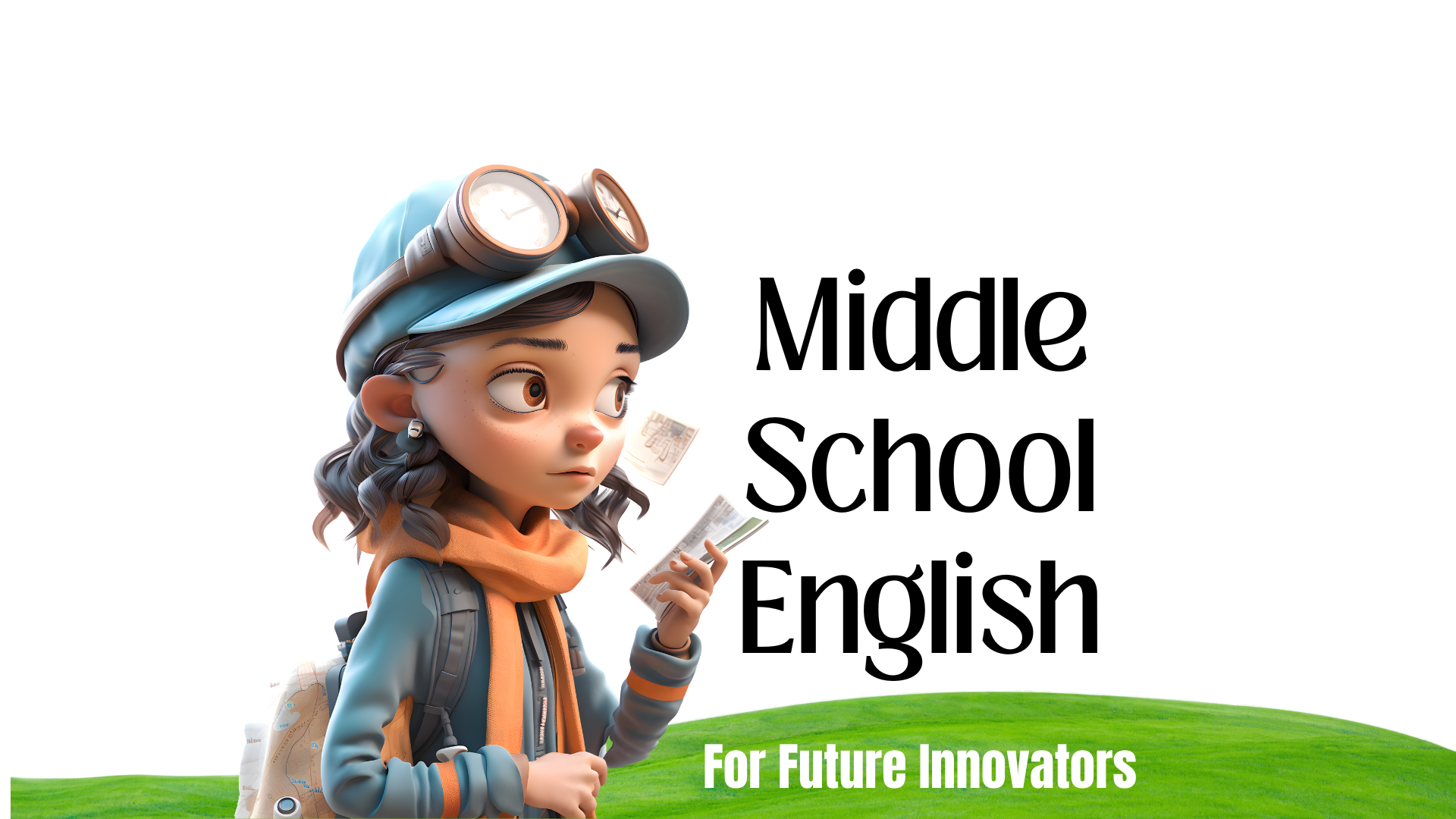
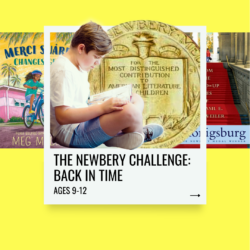
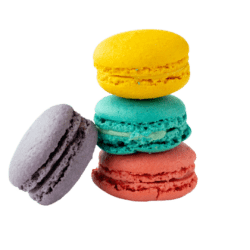
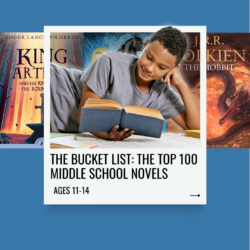
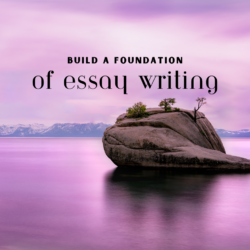
Reviews
There are no reviews yet.